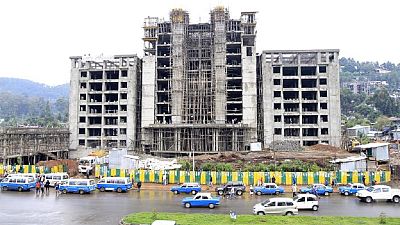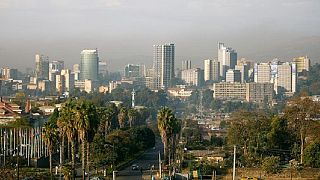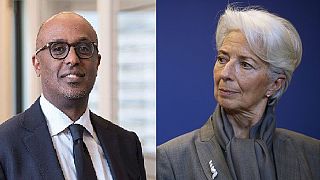Ethiopia
Ethiopia’s state of emergency rule, which is in its ninth month (it was declared in October 2016) was expected to quell spreading anti-government protests in two main regions of Amhara and Oromia – that has largely been achieved according to the Command Post administering the state of emergency.
There, however, is a new protest that is economic in nature. Surprisingly so, given the fact that beyond the East Africa region, where the country has been named economic giant, Addis Ababa continues to get economic praise from reputable international finance institutions.
The new protest is also situated in one of the hitherto restive regions, Oromia. Small business people according to the privately-owned Addis Standard (AS) news portal were protesting over a recently introduced business tax. Most businesses had shut down in protest.
The new tax targets businesses with an annual turnover of up to 100,000 Birr (about $4,300), its is aimed primarily at boosting government revenue. But business people insist it is over-estimated and the authorities are demanding too much.
AS described the situation which has been simmering over the past week as a case of ‘testing the streets again.’ The class of protesters are those in category ‘C’ of the taxation bracket. They report that police and military were deployed to parts of the region as at Monday, July 17, 2017.
The portal also reported some skirmishes in a city located about 120km west of the capital Addis Ababa. Similar concerns are brewing in the capital where people are weighing their options of returning their business licenses or filing complaints with the tax authorities.
The official government response aside the deployment of security personnel was from an official of the Ethiopia Revenue and Customs Authority, Netsanet Abera, who said earlier this month that there was some misunderstanding of the tax.
‘‘We have not imposed such taxes. The confusion is due to lack of understanding and the tendency of considering daily incomes as taxes.’‘ There has yet to be an official communication on the current situation.
The country despite its challenges – security-wise, due to refugee influx and also a biting drought in the horn of Africa region has earned economic praise from global finance outfits, the World Bank and the International Monetary Fund (IMF).
The World Bank in a recent report report stated that Ethiopia’s economy will be the most expansive on the continent for the year 2017 followed by Tanzania, Ivory Coast and Senegal in that order.
The position was contained in the global finance outfit’s Global Economic Prospect report released in June.
Before the World Bank, the IMF had in April this year ‘crowned’ the country as the new economic giant of the East Africa region dethroning neighbouring Kenya.
Their annual economic output for 2017 was expected to hit $78 billion from $72 billion recorded last year. Ethiopia’s economic growth since 2015 has been pegged at 10.8% putting a significant gap between them and Kenya. In monetary terms, Ethiopia has opened a gap of over $29 million on Kenya.
Ethiopia plans private involvement in roads projects
Ethiopia plans to offer shares in its road-building and maintenance projects to private investors, its finance minister said on Tuesday, the latest step to open up and modernise the state-led economy.
The Horn of Africa country has over 113,000 kilometres (68,0000 miles) of paved roads and plans to increase that to 220,000 kilometres by 2019/20, official data showed.
“We do not have private-run roads. Through public-private partnerships, the private sector is interested to develop roads,” Minister of Finance and Economic Development Abraham Tekeste told Reuters in an interview.
“Through this arrangement, we could work to share the risks and create an environment whereby the private sector can recoup returns on its investment.”
The move to partly liberalise the sector follows Ethiopa’s decision to offer foreign companies stakes in the government-operated Ethiopian Shipping and Logistics Services Enterprise early this year and its energy sector in 2013.














01:30
Brazilian president slams Trump for threatening 50% tariffs
11:19
Cocoa is under pressure while East African economy is on the rise {Business Africa}
01:03
Fuel allowance scrapped for Ghana's cabinet and public leaders
01:14
Boeing reaches settlement with man who lost entire family in 737 MAX Crash
Go to video
Gaza’s scarcity of cash fuels desperation, sparks unusual trade
01:08
Dancehall superstar Shatta Wale urges young people to back President Mahama